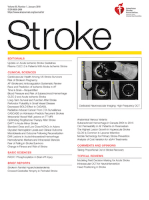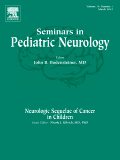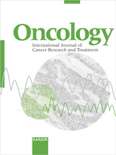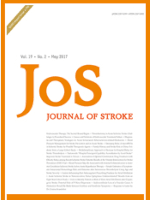
STROKE
Scope & Guideline
Elevating Standards in Neurology and Cardiology Research
Introduction
Aims and Scopes
- Epidemiology and Risk Factors:
The journal covers research on the epidemiological trends and risk factors associated with stroke, emphasizing the importance of understanding demographic disparities and the role of comorbidities. - Acute Treatment and Interventional Strategies:
It provides insights into acute treatment protocols, including the effectiveness of thrombolysis and endovascular thrombectomy, and explores new interventional strategies for improving outcomes. - Rehabilitation and Recovery:
Research on rehabilitation techniques post-stroke, including innovative approaches to physical and cognitive recovery, is a significant focus, highlighting the importance of multidisciplinary care. - Neuroprotection and Pathophysiology:
The journal includes studies on neuroprotective strategies and the underlying pathophysiological processes of stroke, aiming to identify potential therapeutic targets. - Patient-Centered Care and Quality of Life:
It addresses the psychosocial aspects of stroke recovery, emphasizing the need for patient-centered approaches and the impact of stroke on quality of life. - Technological Innovations:
The journal discusses advancements in technology, including telemedicine and digital health tools, aimed at enhancing stroke care delivery and patient monitoring. - Public Health and Policy Implications:
Research that informs public health strategies and policy initiatives to improve stroke prevention and management at community and national levels is also featured.
Trending and Emerging
- Artificial Intelligence and Machine Learning:
The integration of AI and machine learning techniques for stroke prediction, diagnosis, and treatment optimization is gaining momentum, indicating a trend towards data-driven decision-making. - Telehealth and Remote Monitoring:
The rise of telehealth services for stroke care, particularly in the context of the COVID-19 pandemic, demonstrates an emerging emphasis on remote patient management and accessibility. - Post-Stroke Cognitive Impairment:
An increase in research addressing cognitive impairment following stroke is evident, emphasizing the need for interventions that target both cognitive and physical recovery. - Multidisciplinary Rehabilitation Approaches:
There is a trend towards collaborative rehabilitation efforts that involve various healthcare professionals to address the diverse needs of stroke survivors effectively. - Health Disparities and Social Determinants:
Research focusing on health disparities and the impact of social determinants on stroke outcomes is emerging, highlighting the importance of addressing inequities in stroke care. - Novel Therapeutic Approaches:
Emerging studies exploring innovative therapeutic interventions, including pharmacological and non-pharmacological strategies for stroke recovery, are becoming more prevalent. - Patient Engagement and Self-Management:
There is a growing emphasis on patient engagement strategies and self-management interventions, reflecting a shift towards empowering stroke survivors in their recovery journey.
Declining or Waning
- Traditional Risk Factor Studies:
Research focusing solely on traditional risk factors such as hypertension and diabetes is becoming less prevalent, as newer studies emphasize multifactorial approaches and the integration of lifestyle and psychosocial factors. - Basic Laboratory Studies:
There is a noticeable decrease in basic laboratory studies that do not translate into clinical applications. The journal is favoring studies with clear clinical relevance and practical implications. - Historical Cohort Studies:
Cohort studies that lack contemporary relevance or fail to incorporate recent data analytics and methodologies are increasingly being overshadowed by more innovative and timely research approaches. - Single-Center Trials:
The focus on single-center trials is waning, with a shift towards multicenter collaborations that enhance the generalizability and applicability of findings across diverse patient populations.
Similar Journals

NEUROREHABILITATION AND NEURAL REPAIR
Empowering Progress in Neural Repair.NEUROREHABILITATION AND NEURAL REPAIR, published by SAGE Publications Inc, is a leading journal in the fields of neurology and rehabilitation, addressing critical issues in neurorehabilitation across a broad spectrum of neurological disorders. With an impressive impact factor and consistently ranked in the Q1 category in both Neurology and Rehabilitation, this journal is esteemed for its rigorous peer-reviewed research contributing to advancements in clinical practice and rehabilitation strategies. The journal boasts an HIndex that reflects its global influence and is highly regarded among professionals and researchers, ranking in the top tiers of Scopus metrics across various categories. Since its inception in 1987, NEUROREHABILITATION AND NEURAL REPAIR has fostered innovative research aimed at improving outcomes for patients with neurological impairments, making it a crucial resource for those engaged in clinical research and therapeutic interventions. Explore this prestigious journal to stay at the forefront of developments in neurorehabilitation, with access options available for diverse readerships.

Stroke Research and Treatment
Fostering collaboration to enhance stroke care worldwide.Stroke Research and Treatment is a premier Open Access journal published by HINDAWI LTD, dedicated to advancing the understanding and management of stroke and related neurological disorders. Since its inception in 2010, this journal has established itself as a valuable resource for researchers and clinicians in the field of neurology, providing a platform for high-quality, peer-reviewed articles that aim to improve patient outcomes and stimulate clinical practice innovations. With a 2023 Scopus ranking placing it in the Q3 category and a percentile ranking of 44th in clinical neurology, the journal is positioned to influence the ongoing discourse in stroke research. Stroke Research and Treatment embraces a global audience, with its editorial operations based in London, England. The journal's commitment to open access ensures that its content is freely available to all, promoting extensive dissemination and engagement in this critical field of study. Researchers, professionals, and students are encouraged to contribute their findings to this dynamic journal, fostering collaboration and knowledge sharing in the ongoing fight against stroke.

REVISTA ESPANOLA DE CARDIOLOGIA
Fostering Excellence in Cardiovascular ResearchREVISTA ESPANOLA DE CARDIOLOGIA is a premier journal dedicated to the dynamic field of cardiology, published by EDICIONES DOYMA S A in Barcelona, Spain. With an impressive Q1 status in the Medicine (miscellaneous) category for 2023, this journal is recognized for its significant contributions to cardiovascular research, evidenced by its rank of #61 out of 387 in the Scopus database, placing it within the top 16% of journals in its field. Covering a broad range of topics within cardiology, the journal aims to disseminate high-quality research, clinical studies, and educational content, fostering knowledge sharing among researchers, clinicians, and students alike. While it does not currently offer open access, the journal maintains a commitment to advancing cardiovascular health through rigorous peer-reviewed articles. With a publication history that spans from 2013 to 2024, REVISTA ESPANOLA DE CARDIOLOGIA is an essential resource for those seeking to stay at the forefront of cardiology advancements and practices.

Seminars in Pediatric Neurology
Empowering practitioners with innovative insights.Seminars in Pediatric Neurology, published by W B SAUNDERS CO-ELSEVIER INC, is a prestigious journal dedicated to the evolving field of pediatric neurological disorders. Since its inception in 1994, this peer-reviewed journal has provided critical insights and cutting-edge research to support healthcare professionals in enhancing the quality of care for children with neurological conditions. With an impressive 2023 impact factor and a Q2 ranking in both the clinical neurology and pediatrics categories, it stands as a vital resource, fostering the dissemination of knowledge among researchers and clinicians alike. Featuring articles that explore a range of topics from clinical trials to innovative treatment modalities, this journal empowers practitioners with the latest findings in pediatric neurology. While primarily subscription-based, it plays a key role in bridging the gap between academia and clinical practice, making it an indispensable tool for anyone involved in the care and treatment of pediatric neurological patients.

ONCOLOGY
Exploring the forefront of cancer treatment and research.ONCOLOGY is a prestigious journal published by KARGER, dedicated to advancing the field of cancer research and treatment. Established in 1948, this peer-reviewed journal has established a significant presence in the medical community, reflected by its impressive impact factor and Q2 category rankings in both Cancer Research and Oncology as of 2023. With a focus on groundbreaking research and comprehensive reviews, ONCOLOGY serves as a crucial resource for researchers, clinicians, and students interested in the latest developments in the fight against cancer. Although it currently does not offer open access, the journal's reputation ensures that it reaches a wide audience in academia and clinical practice. Its commitment to excellence is underscored by its consistent rankings in key disciplines, making it a vital publication for anyone involved in cancer research, biology, or associated medical fields. The journal is headquartered in Basel, Switzerland, positioning it at the heart of European medical research.

Journal of Stroke
Pioneering Discoveries in Stroke ScienceJournal of Stroke is a premier open-access journal published by the Korean Stroke Society, dedicated to advancing the understanding of stroke through cutting-edge research and innovative clinical practices. Since its inception in 2013, the journal has gained notable recognition in the fields of Cardiology and Cardiovascular Medicine and Neurology, reflecting its commitment to high-quality, peer-reviewed content, with rankings in the top quartiles (Q1) for both categories as of 2023. The journal’s impact is underscored by its Scopus rankings, placing it in the 92nd and 91st percentiles within its respective fields, thus serving as a vital resource for researchers, clinicians, and students seeking to enhance their knowledge and contribute to stroke research and treatment methodologies. The Journal of Stroke is strategically positioned in South Korea and fosters a global dialogue on stroke-related issues, reinforcing its role as a pivotal platform for disseminating vital findings that can influence both clinical practices and health policy.

EUROPEAN NEUROLOGY
Elevating Understanding of Neurological DisordersEuropean Neurology, published by KARGER, is a distinguished journal in the field of neurology, catering to both clinical and neuroscience specialties. Since its inception in 1897 and continuing through 2024, the journal has been a vital platform for disseminating significant research findings and insights in neurology. With an ISSN of 0014-3022 and E-ISSN of 1421-9913, it ranks in the Q3 quartile in both clinical neurology and general neurology categories, reflecting its commitment to scholarly excellence while holding the 175th rank in clinical medicine and the 93rd in neuroscience, according to Scopus metrics. European Neurology facilitates a deeper understanding of neurological disorders and treatments, appealing to a diverse readership that includes researchers, clinicians, and students alike. Despite not currently offering open access, the journal’s rigorous peer-review process ensures that only high-quality research reaches its audience, making it an essential resource for those looking to stay informed in the rapidly evolving field of neurology.

Annals of Indian Academy of Neurology
Connecting Researchers, Practitioners, and Students in NeurologyAnnals of Indian Academy of Neurology is a premier open access journal dedicated to advancing the field of Neurology, serving as a vital resource for researchers, healthcare professionals, and students since its inception in 2006. Published by the esteemed Wolters Kluwer Medknow Publications, this journal has established itself within the academic community, boasting a Q3 quartile ranking in clinical neurology according to the 2023 category quartiles and a Scopus rank placing it in the 35th percentile among 400 comparable journals. With a focus on clinical advancements and research innovations in neurology, the journal aims to disseminate high-quality and impactful studies that address the complex challenges faced in the neurological landscape, particularly within the Indian context. The open access model ensures that the latest research is readily accessible to a global audience, thereby promoting collaboration and knowledge sharing within the neurosciences.

Egyptian Heart Journal
Empowering research in cardiology through open access.The Egyptian Heart Journal, published by Springer, is a premier open-access journal dedicated to advancing the field of cardiology and cardiovascular medicine. As of 2023, it holds a Q3 classification within the category, showcasing its growing influence within the research community, and ranks 241 out of 387 in Scopus, reflecting a 37th percentile position. With an E-ISSN of 2090-911X, this journal has been open access since 2011, making it easily accessible to researchers, practitioners, and students alike. The journal aims to disseminate high-quality research articles, reviews, and case studies that contribute to the understanding and treatment of cardiovascular diseases. With its focus on innovative and practical solutions in cardiology, the Egyptian Heart Journal plays a critical role in shaping current and future cardiovascular research. Its global outreach and commitment to open access ensure that vital information is available to a wide audience, enhancing both scholarly discourse and clinical practice in the evolving landscape of cardiovascular medicine.

European Stroke Journal
Innovating the future of stroke research and practice.The European Stroke Journal, published by SAGE Publications Ltd, is a pivotal resource in the domains of Cardiology and Neurology, reflecting its commitment to advancing knowledge and research in these critical areas of medicine. Since its inception in 2016, this journal has rapidly gained recognition, achieving a prestigious Q1 ranking in both Cardiology and Neurology (clinical) as of 2023, placing it among the top quartile publications in these fields. With a prominent position, ranked 65th and 72nd respectively in Scopus for Cardiology and Neurology, the journal caters to a diverse audience of researchers, clinicians, and students dedicated to improving stroke treatment and prevention strategies. Although it operates under a traditional access model, its impactful publications are essential for anyone involved in stroke research, ensuring they remain at the forefront of scientific developments and clinical practices.